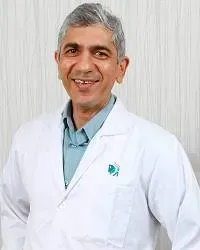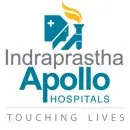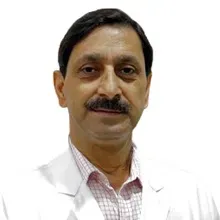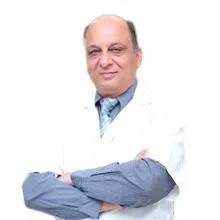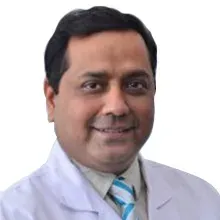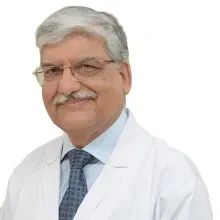Dr. Yatinder Kharbanda is an Orthopedic surgeon based in Sarita Vihar, Delhi, with 37 years of experience. He practices at Indraprastha Apollo Hospitals. Dr. Kharbanda completed his MBBS from the University of Bombay in 1984, Diploma in Orthopaedics from The College of Physicians and Surgeons,
Bombay in 1987, and DNB in Orthopedics/Orthopedic Surgery from the National Board of Examination, India in 1989. He is a member of the Medical Council of India (MCI). Some of the treatments he offers include care for foot injuries, stem cell therapy for orthopedic conditions, specialized wound care for high-risk patients, management of foot drop, and assessing ankle-brachial index.
Foot Injury Treatment : It involves addressing foot injuries, which can range from minor sprains to more severe fractures or soft tissue damage. Treatment may include rest, ice, compression, and elevation (RICE), immobilization with splints or casts, pain management, and, in some cases, surgical intervention to repair damaged structures and promote healing.
Stem Cell Therapy for Orthopedic Conditions : Stem cell therapy is a regenerative approach to treating orthopedic conditions by utilizing the body's own cells to repair damaged tissues. Stem cells have the potential to differentiate into various cell types, aiding in the regeneration of cartilage, bone, and other structures affected by conditions like osteoarthritis or tendon injuries. This innovative therapy aims to reduce pain, improve function, and potentially delay or avoid the need for invasive surgeries.
High-Risk Wound Care : High-risk wound care involves specialized management of wounds that are more prone to complications or delayed healing, such as diabetic foot ulcers or pressure sores. It requires meticulous assessment, cleaning, and dressing of the wound, along with addressing underlying factors like poor circulation or infection. The goal is to promote optimal wound healing, prevent infection, and reduce the risk of further complications, which may involve regular monitoring and coordination with other healthcare professionals.
Foot Drop : Foot drop is a condition characterized by weakness or paralysis of the muscles that control dorsiflexion (lifting the foot upward). It can result in difficulty lifting the front part of the foot, leading to dragging or slapping of the foot while walking. Treatment may include physical therapy to strengthen muscles, orthotic devices like braces or splints to support the foot, and in some cases, surgical intervention to repair nerve damage or release tight muscles.
Ankle-Brachial Index : The ankle-brachial index (ABI) is a non-invasive test used to assess peripheral arterial disease (PAD) by comparing blood pressure measurements in the ankles and arms. A lower ABI indicates reduced blood flow to the lower limbs, which may be indicative of blockages or narrowing of the arteries. This test helps in diagnosing PAD, assessing its severity, and guiding treatment decisions to improve blood flow and reduce the risk of complications like ulcers or limb ischemia.
Diabetic Foot Check-Up : Diabetic foot check-ups are crucial for individuals with diabetes to prevent and detect complications like neuropathy, ulcers, and infections. It involves a thorough examination of the feet to assess sensation, circulation, and any signs of injury or abnormalities. Regular foot checks, along with proper foot care practices and education, play a vital role in preventing diabetic foot complications and reducing the risk of serious infections or amputations.
Neuropathy Assessment : Neuropathy assessment involves evaluating nerve function, particularly in the peripheral nerves that may be affected by conditions like diabetes or nerve compression. This assessment may include tests to measure sensation, reflexes, and nerve conduction velocity to identify areas of nerve damage or dysfunction. Early detection of neuropathy allows for timely intervention to manage symptoms, prevent further nerve damage, and address underlying causes such as diabetes control or ergonomic adjustments.










